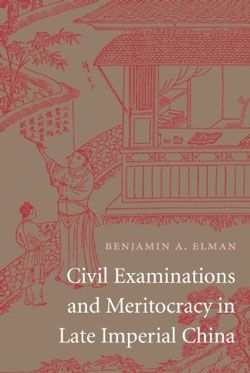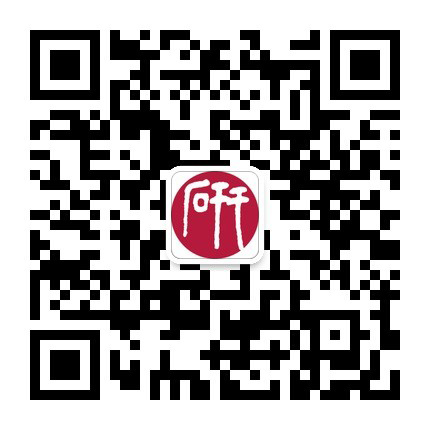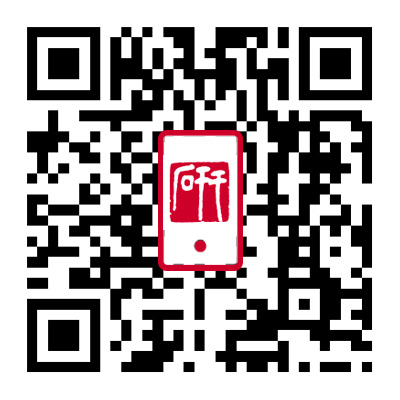Civil examinations and meritocracy in late Imperial China. Benjamin A. Elman. Cambridge, MA: Harvard University Press, 2013. 416 pp., (hardcover), $45, ISBN: 978-067-472-495-2.DOI 10.3868/s110-004-015-0023-1
Civil Examinations and Meritocracy in Late Imperial China is Benjamin Elman’s latest monograph. It reveals his broad sociological understanding of Chinese civil examination and imperial politics. Since Elman began to explore the history of Chinese education and culture, he has been fascinated by the vast hierarchical structure of the ancient Chinese state which staffed around 25 thousand offices during the late imperial period, from 1400 to 1900. Selected by the nation-wide civil examination system based on the body of Confucian learning and classical literary writing and tested by the eight-legged essay, the best and the brightest students had the chance to enter the state political arena in which they could advance to achieve fame and fortune. It is his sociological fascination that makes Elman’s narration sharply different from that of other scholars of Chinese educational and cultural history.
Elman cannot accept the negative accounts and ignorant understanding in recent studies of late Imperial China, which tend to dismiss classical Chinese education as a dismal exercise in rote learning, or take for granted that “Way learning” or “Neo-Confucianism” developed in the Song dynasty was the primary and core content of traditional Chinese educational life. To Elman, the more important part of the history of education in late Imperial China is not the “unfolding” or “dissimilation” of the Song dynasty’s “Way learning,” but the civil examination and its cultural, social and political implications as described in this volume.
It is possible to argue that Elman’s new book makes a strong challenge to “Neo-Confucian”-based definitions of pre-modern Chinese education. Not only that, Elman’s book also offers a meaningful social ideal or theoretical conception for understanding the modern value of civil examinations and the educational- social system of ancient China, namely “meritocracy.” Through viewing the civil examination under the light of “meritocracy,” Elman successfully unveils an alternative mode of society in late Imperial China, which can transcend the familiar modern social system dominated by capitalism-oriented market forces or so-called Western “democratic” party politics. Put in another way, Elman’s book encourages us to look back at late Imperial China, so as to imagine a meritocratic society based on a nationwide education system and a secular cultural life.
This insightful and meaningful book is divided into three parts. Part I, consisting of two chapters, illustrates the Ming dynasty’s institutional efforts to build a political merit system, in which social prestige and political attainment depend deeply on written examinations as educational credentials. Most notably, as described in Chapter 2, it was the curriculum created by the civil examination competition that consolidated gentry, military, and merchant families into a culturally defined status group of degree holders who shared a common classical language and educational practice. Chapter 2 also discusses the key features of the civil examination system, such as the institutional control of formal knowledge, and its testing halls across the empire. Despite focusing on the sociopolitical outcomes, Elman pays significant attention to the unintended cultural consequence of the building of the examination system, especially the formation of legions of classically literate men and some woman, who could use their skills for non-political purposes, including fiction writing, textbook printing, and other cultural activities.
Part II is composed of three chapters. Chapter 3 demonstrates the healthy circulation of Chinese elites via classical education and the central government’s selection of officials, via the civil examination screening process, starting from prospective elites being scattered in schools in every county. The educational consequence of the government’s selection machine is addressed in Chapter 4, which reveals that dynastic schools in every county eventually became way stations for students preparing for the more prestigious civil examinations. Chapter 5 explores the examination market-place and elite and public cultural history, helping the reader understand more clearly why the civil examinations were the central events in late Imperial China’s cultural history.
Part III also contains three chapters. In Chapter 6, the author shifts his attention to how the civil examination were retooled to adapt to the changing times of the 18th century, in light of the Qing dynasty’s increasing inability to deal with the sociocultural crisis around the state. The last two chapters discuss new testing standards and the collapse of the civil service examinations before and after the Taiping Rebellion, in particular by describing a series of curricular reforms used to try to rebalance the educational and political system of late Imperial China after it had come under attack by domestic and foreign forces.
These educational reform efforts, as Elman noted in the Epilogue, were doomed to end in failure. In 1905, the civil service examinations were abolished by reformers. Six years later, Imperial China itself collapsed. After that, the education and civil service systems came under the control of modern political parties that favored revolution and mass mobilization. Today in China, the civil service and social prestige are again closely tied to written examinations and the state school system. Elman concludes by pointing out that there has been a revival of the education-based social structure in contemporary China. He does not make any more comment about China’s centuries-old social ideal and institutional habits, but his readers may go a further step beyond “modernity” as dominated by modern capitalism’s market and political forces, and imagine a better “meritocratic” society which values humanism in educational and cultural life.
ZHOU Yong
East China Normal University
E-mail: yzhou@kcx.ecnu.edu.cn






